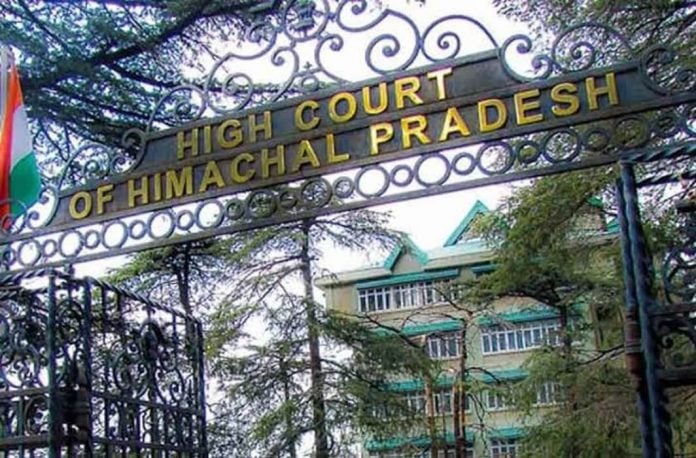The Himachal Pradesh High Court observed that young adolescents, who by and large remain in custody of their guardians, are able to procure the prohibited drug. Definitely the drug is made available through a supply chain managed in an organized manner.
A Single Bench of Justice Satyen Vaidya made this observation while dismissing two bail petitions arising from the case under Section 21 & 29 of Narcotic Drugs & Psychotropic Substances (NDPS) Act and Sections 181, 192 and 196 of Motor Vehicles Act, has been registered at Police Station, Sunni, District Shimla, H.P. dated 10.3.2022.
According to the facts, Police recovered and seized 142 grams heroin from a vehicle which was occupied by the petitioners. Petitioner Dilbar Khan was in the driving seat and petitioner Rajinder Sharma was the other occupant of the vehicle. Police had prior intimation about the crime. Compliance of Section 42(2) of NDPS Act was made and thereafter the contraband was recovered at about 10.30 p.m. at place Bashalti near Madhod Kenchi within the jurisdiction of Police Station, Sunni.
As per secret information received by police, two vehicles were approaching Sunni and occupants thereof were carrying contraband. The information was found to be correct and both the aforesaid vehicles were apprehended. Whereas nothing incriminating was recovered from one vehicle , 142 grams of heroin was recovered from the other vehicle as noticed above.
According to police, all the occupants of both the vehicles had brought heroin from Delhi for being sold to the consumers in Sunni areas. Petitioners were arrested on 10.3.2022. The investigation is stated to be complete and challan is in the process of being filed in the Court.
Petitioners have approached the High Court for grant of bail in the case, on the grounds that they are innocent and have been falsely implicated. Their co-accused Mohit and Parvez have been enlarged on bail by Special Judge (CBI), Shimla on 20.4.2022. Petitioners are local residents of Himachal Pradesh and belong to respectable families. They are having roots in the society and there is no apprehension of their absconding or fleeing from the course of justice. Petitioners have undertaken not to tamper with the prosecution evidence.
Counsel for the petitioners has contended that the quantity of the contraband recovered in the case is of intermediate i.e. less than commercial quantity. Petitioners have no past history of involvement in offences under NDPS Act. Their prolonged incarceration will not serve any purpose.
After hearing the submission the Court held that no doubt the quantity of contraband in the case is intermediate and therefore the rigors of Section 37 of NDPS Act will not be applicable. Merely because the quantity of contraband recovered is less than commercial quantity may not by itself be sufficient to grant bail.
“The menace of drug abuse is not unknown in the society in modern times. The victims are innocent adolescents besides others. The drug abuse more often than not leads to drug addiction, which ruins the lives of substantial numbers of such persons. The question arises as to how young adolescents, who by and large remain in custody of their guardians, are able to procure the prohibited drug. Definitely the drug is made available through a supply chain managed in an organized manner”, the Court observed.
Moreover the Court noted that the Recovery of 142 grams of heroin from petitioners can be easily perceived as part of the above stated organized crime. 142 grams of heroin cannot be presumed to be in possession of petitioners for self consumption. In view of this matter, the petitioners are not entitled for being released on bail. The rights of petitioners have to be weighed against larger public interest.
“In case of release of petitioners on bail, there is likelihood of them again indulging in similar activity thereby putting the lives of numerous people to peril.”
Keeping in view the substantial quantity of heroin recovered from the petitioners the Court held that it will not be unreasonable to assume that the petitioners were carrying the contraband for sale to the consumers which definitely includes a number of adolescents and young students etc. Absence of any other case against the petitioners under NDPS Act does not necessarily mean that petitioners are first offenders under the NDPS Act. The manner in which the operation of petitioners has been discovered during investigation is definitely evident of their clear intent to commit offence.


